
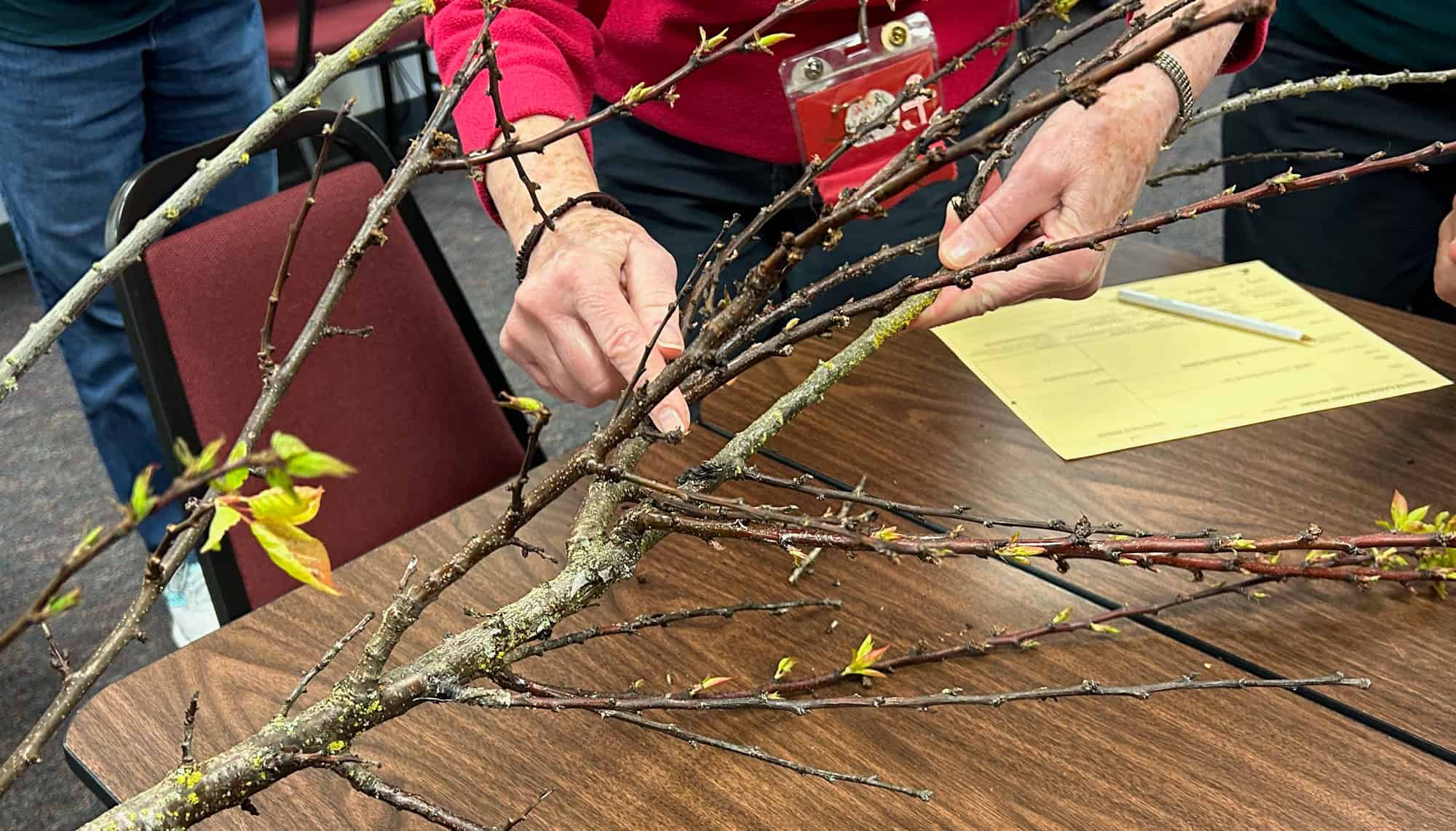
Tap into Great Gardening Advice at a Master Gardener Plant Clinic
An amazing depth of knowledge and resources are available for home gardeners through Master Gardener Plant Clinics and Info Booths throughout Skagit County.
Subscribe to the Blog >By: Ginny Bode and Anne Hays, Skagit County WSU Extension Master Gardeners
Problem with your roses? Does your fruit tree have a virus or a fungus? Is something attacking your pepper starts? Need help identifying plants in your new-to-you garden? Perhaps you have been out and about admiring your garden and noticed that all is not well.
Rather than depending on your neighbor or an online group’s collective input (which may or may not be accurate), visit a plant clinic and get answers to your questions from WSU Extension-trained experts. Master gardeners are an arm of the Skagit County WSU Extension office. They are rigorously trained in scientific gardening methods based on research conducted by leading agricultural institutions.
You’ll find answers to your questions and thousands of other issues faced by home gardeners in Skagit County at a Master Gardener Plant Clinic. Drop in at one of the locations throughout the county, all free of charge, spring through fall.
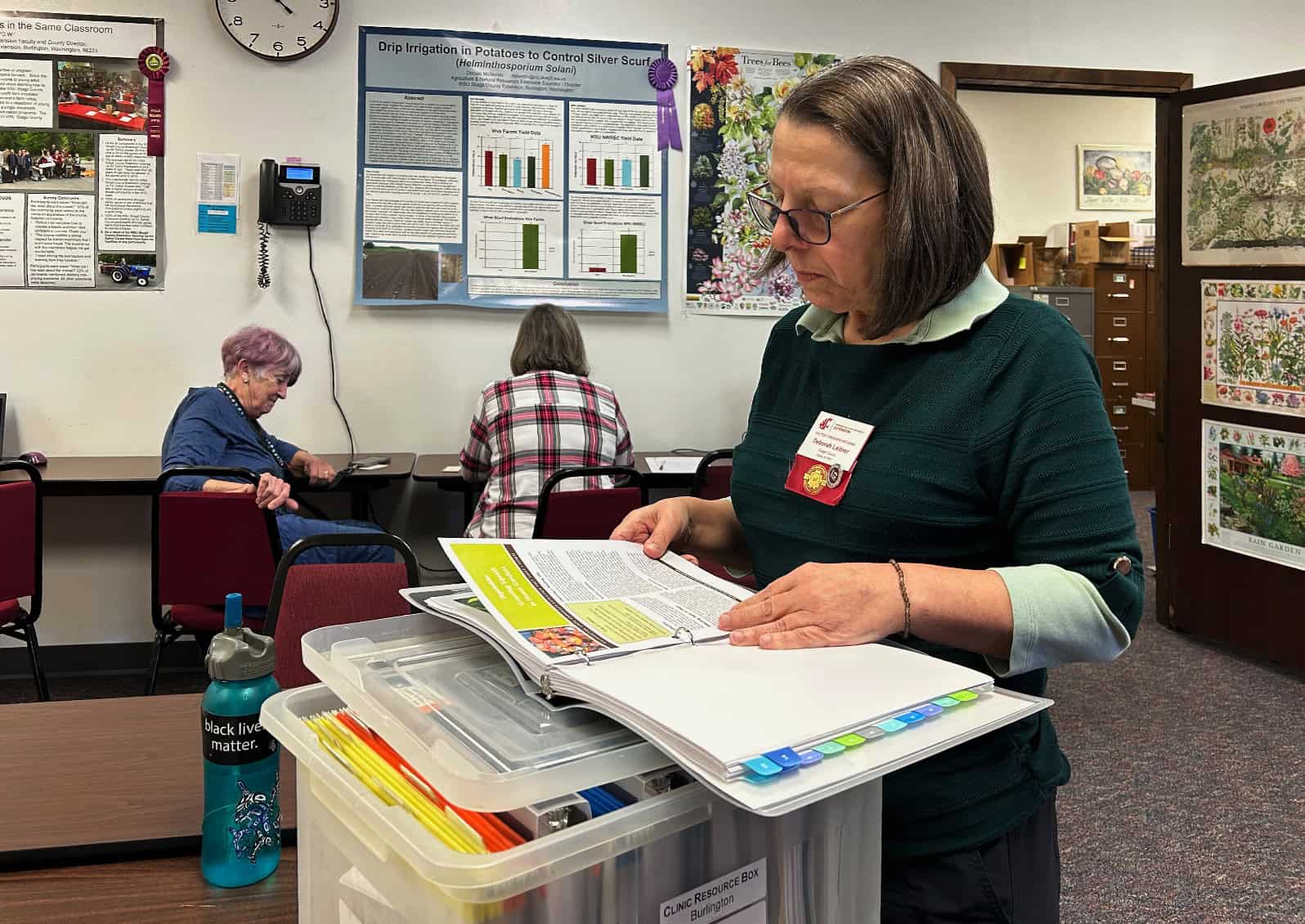
Master gardeners are taught how to search the many publications that document plant issues faced by Pacific Northwest gardeners and the recommended solutions. © Skagit County WSU Extension Master Gardeners
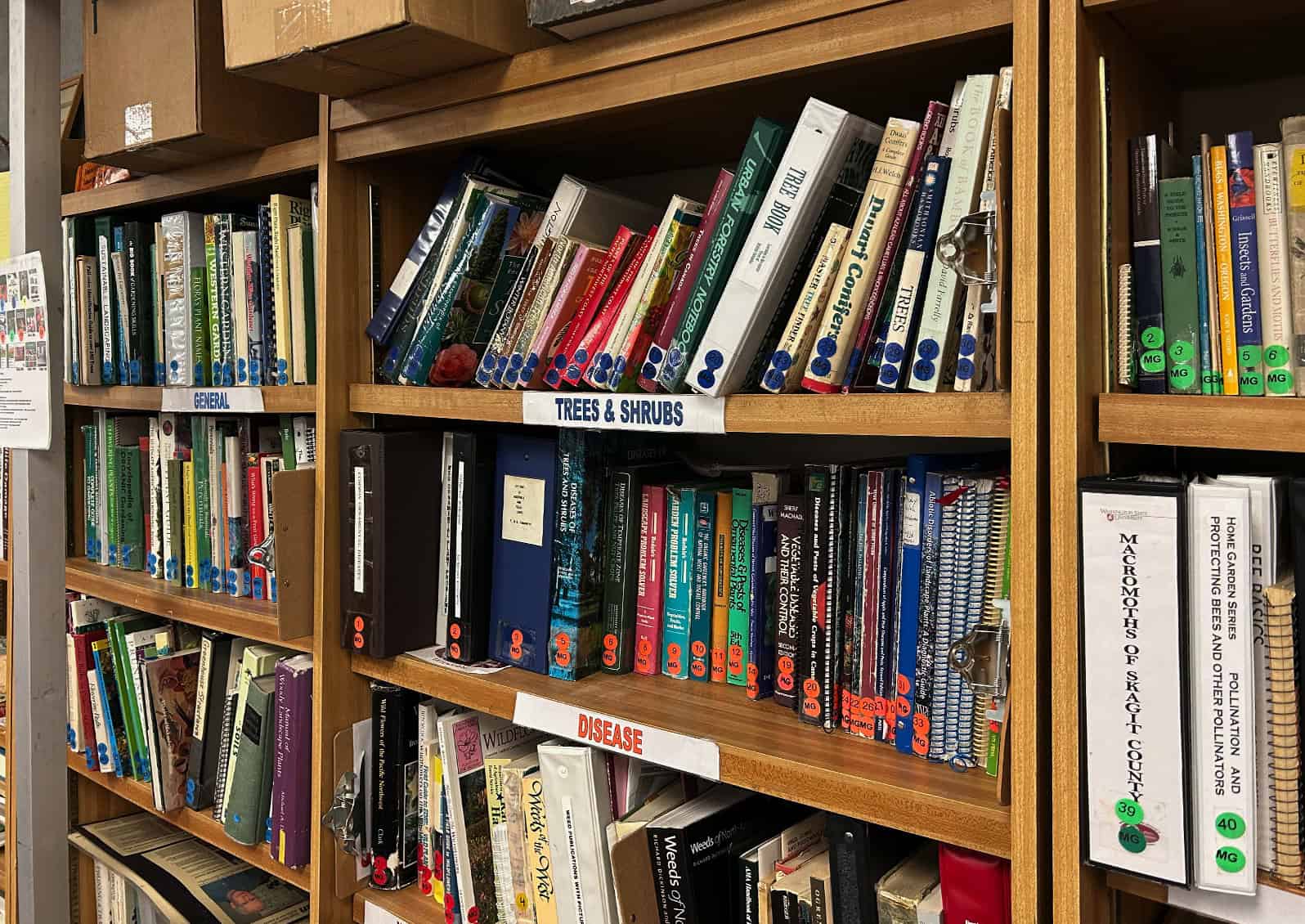
The plant clinic in Burlington has a large resource library with books on insects, flowers, trees, shrubs, weeds and diseases. © Skagit County WSU Extension Master Gardeners
What does science-based gardening information mean?
Master gardeners stand on the shoulders of agricultural research powerhouses such as Washington State University and Oregon State University. These land grant universities support the agricultural industry through research, which includes testing soils, finding solutions for diseases, and identifying the best cultivars for specific climates.
All master gardeners sign a commitment to only offer solutions proven in a university research setting. That means we won’t recommend a solution that isn’t proven reliable and safe. The extensive training includes integrated pest management or IPM. These solutions aim to “reduce human health risks, minimize adverse environmental impacts, and maximize economic returns and sustainability.” Clinic volunteers will help you find a solution that best meets your gardening goals. We’ll give you options if you don’t want to use pesticides. If you do want to use strong chemicals, master gardeners will outline the options and safety measures. Sometimes, the plant is in the wrong place, or a disease is in the soil, and the plant will never be successful. Then, clinic volunteers will recommend removing the plant and starting a new one with a disease-resistant cultivar rather than fighting an ongoing issue for years.
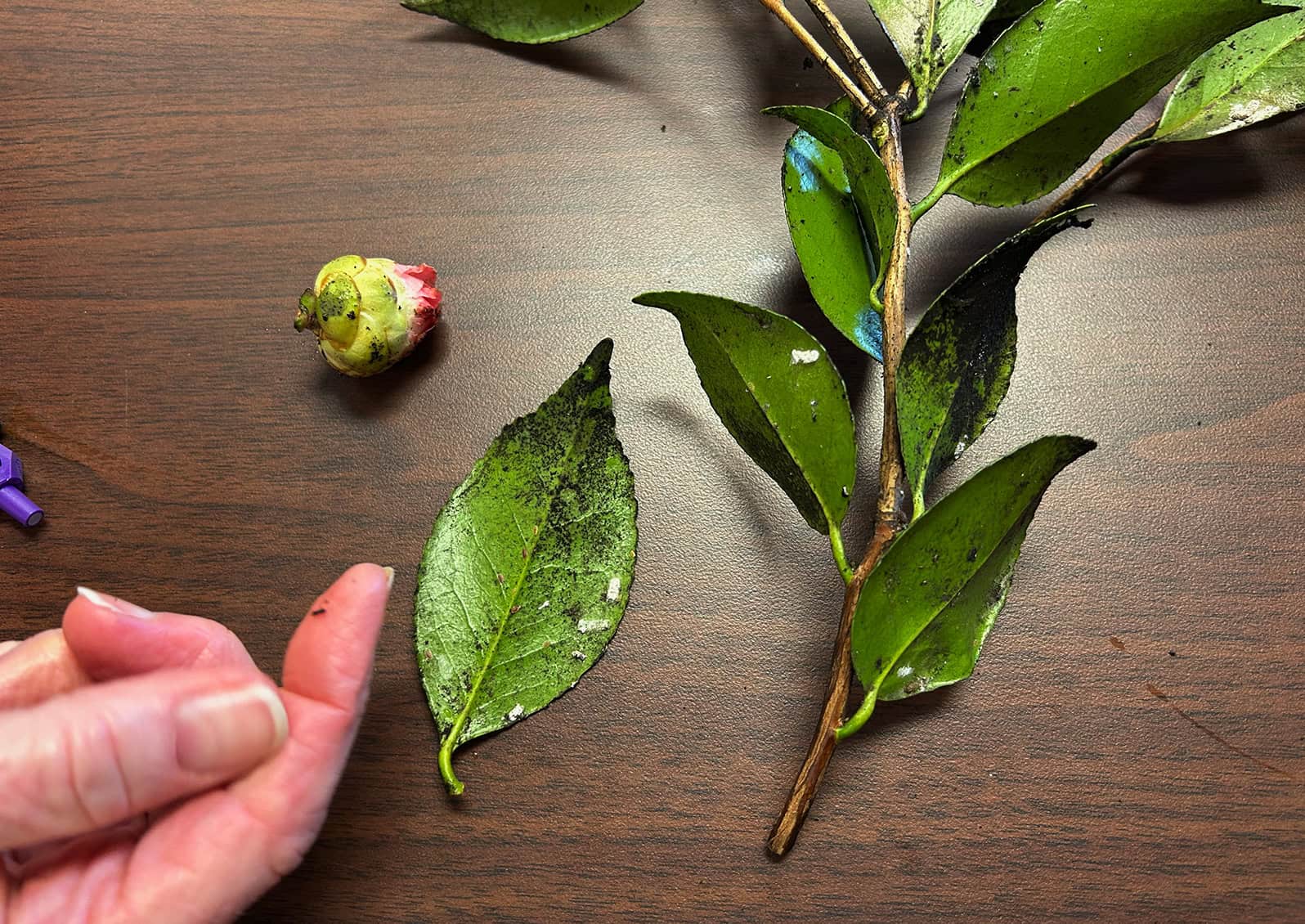
Plant disease diagnoses are a regular part of the plant clinic team’s day. Here a Camellia shows signs of both cottony camellia scale (Pulvinaria floccifera) and sooty mold. © Skagit County WSU Extension Master Gardeners
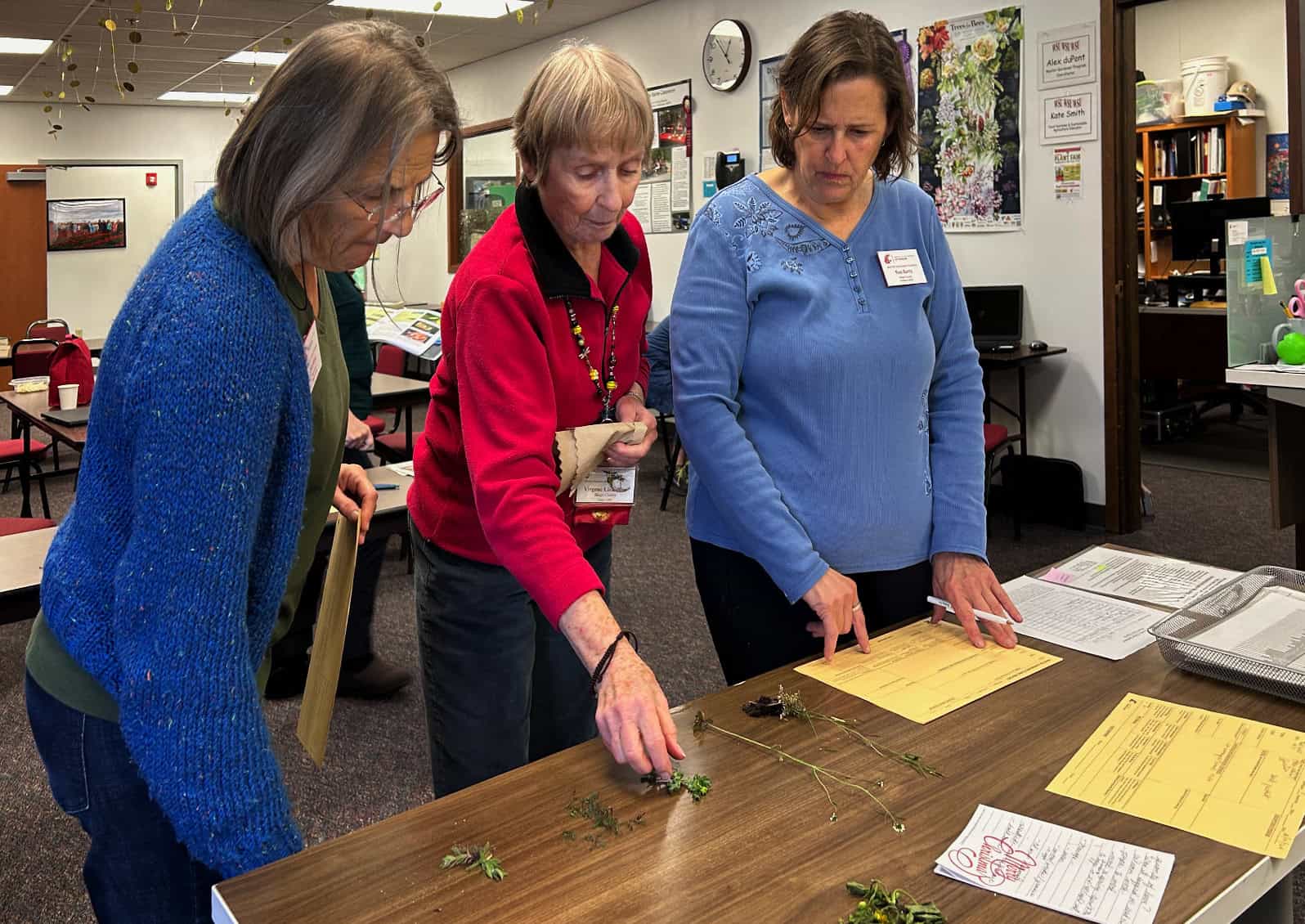
When plant clinic volunteers aren’t busy working on client problems, they are refreshing their knowledge base by identifying insects, weeds, or diseases. © Skagit County WSU Extension Master Gardeners
Who are the plant clinic experts?
You will be astounded at the scientific backgrounds found among the master gardeners who work at the plant clinics. Trained through the Skagit County WSU Extension Master Gardener Program, many core volunteers are retired from bioscience, forestry, and geology careers. Through years of diagnostic study and training, others have become experts in fruit tree diseases or insects. At a plant clinic, master gardeners work as a team to identify the problems and regularly cross-check diagnoses. Any master gardener will tell you that clinic experts are rarely stumped. If they are, they won’t stop until they find the answer.
Master Gardener Allison Hitchcock remembers one of the more unique plant identification challenges: “A client came in and wanted us to identify one of many large pits found piled on her property (likely dumped). I was having lunch at the time and just finishing my mango and easily identified the discarded pits with the one in my hand.”
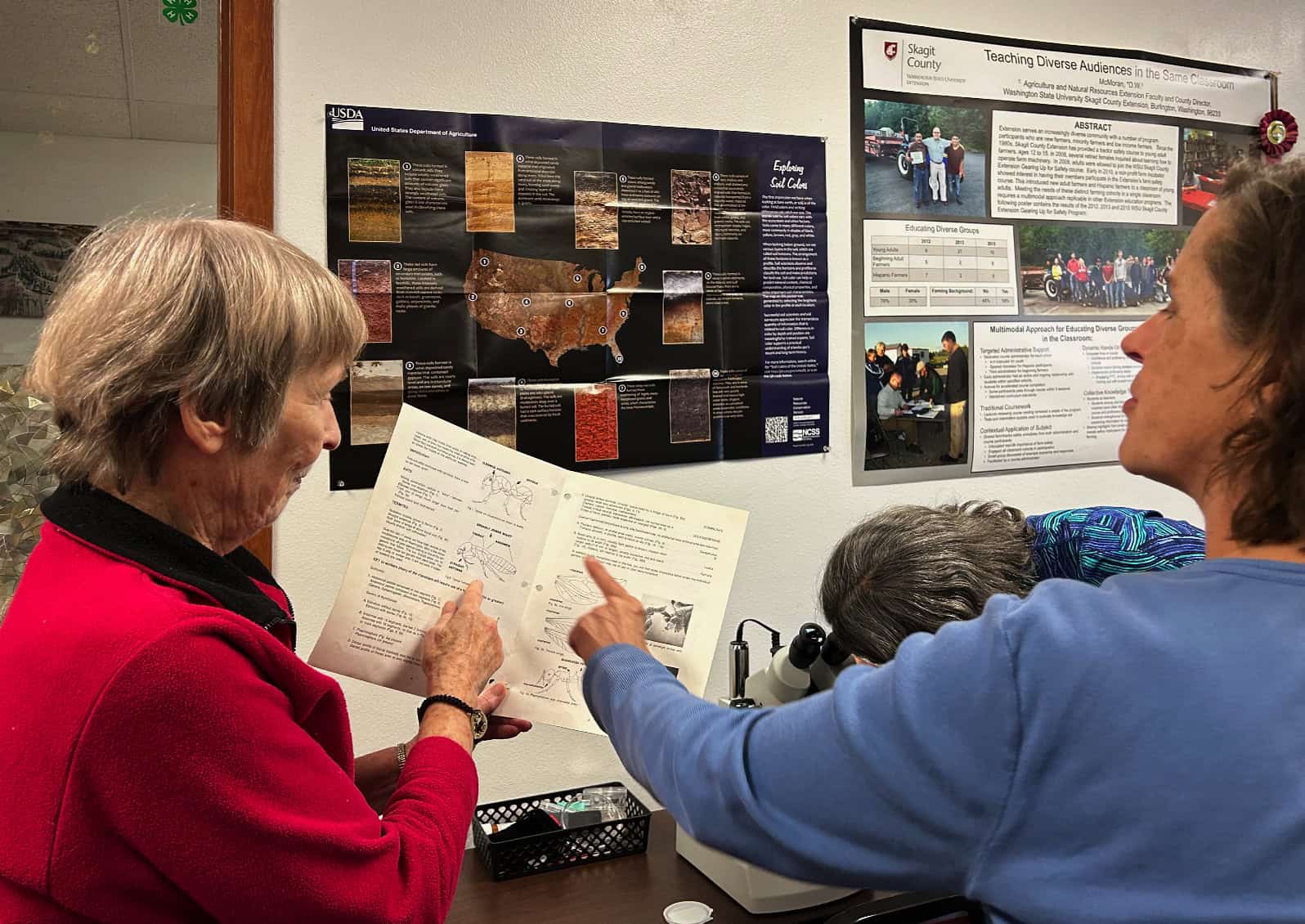
During a recent plant clinic session, master gardeners worked through the identification process for an ant. © Skagit County WSU Extension Master Gardeners
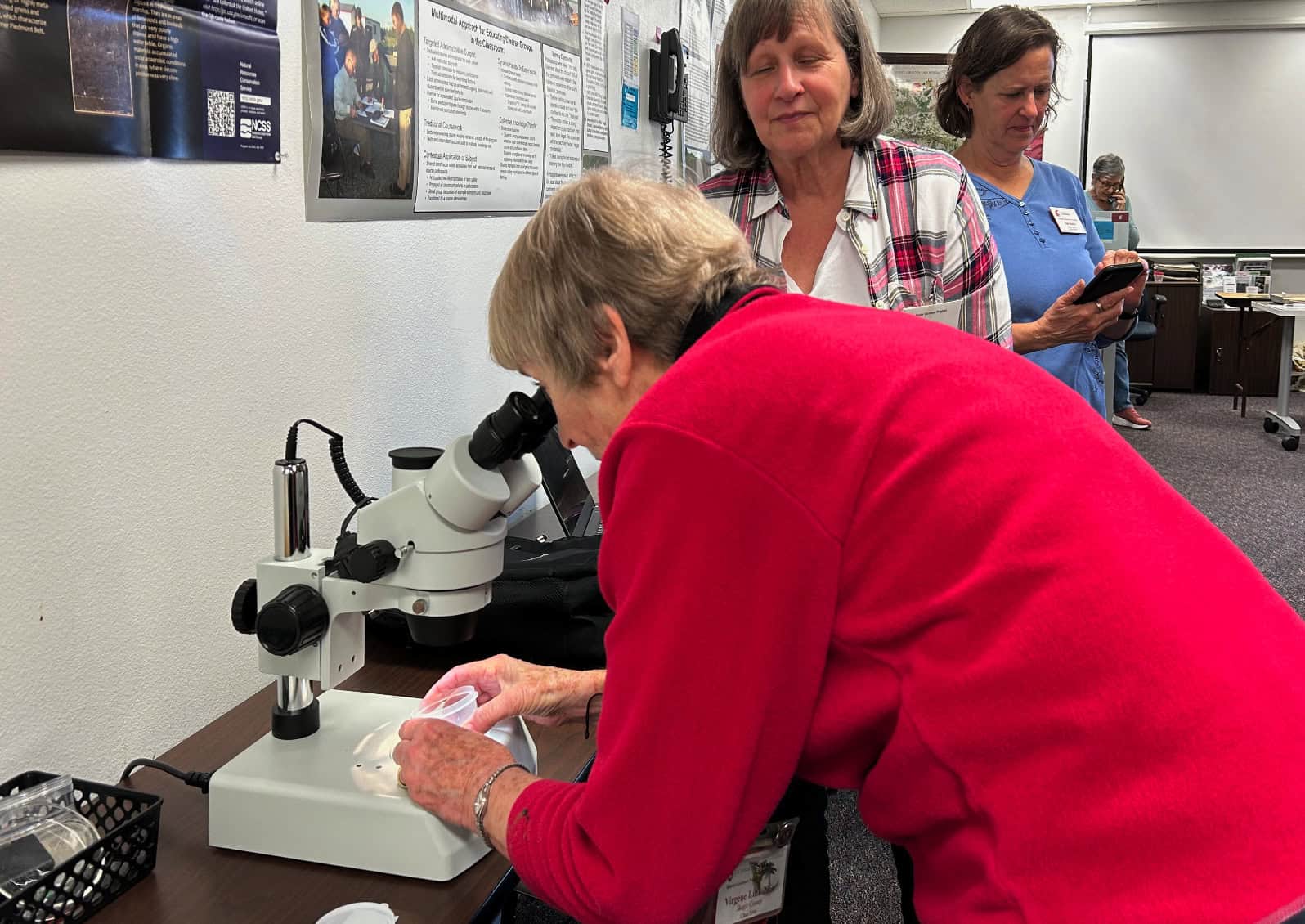
Proper identification is critical to recommending a solution with the least risk or harm to the environment and surrounding living beings. © Skagit County WSU Extension Master Gardeners
Master Gardener Gail Messett remembers an Anacortes clinic visitor who was a fellow master gardener from North Carolina: “She was so glad to see us. She was visiting her son stationed at Whidbey, who had recently purchased a house in Anacortes. She wanted to help him reclaim his mature garden and needed help identifying existing plants and what plants work in the Pacific Northwest. She went back to his house and returned with pictures of plants for us to identify. And, of course, we could suggest native and other plants that would work well in our climate.”
Common Plant Clinic Questions:
- Plant disease diagnosis and treatment suggestions
- Insect identification (and control options, if necessary)
- Plant selection ideas
- General gardening advice, such as pruning techniques, weed control, and pesticide/herbicide application tips
- Gardening resources guidance: We can put you in touch with soil-test sources, native plant societies, mushroom identification sources, and much more
Two Locations in Skagit County
The clinics in Burlington and Anacortes have a library, print materials, access to online resources, and microscopes for plant identification and disease diagnosis. The Anacortes plant clinic is open during the Farmers Market and often attracts visiting tourists or those new to the area and interested in local plants.
Bring Your Suspicious-Looking Plant Materials
Plant clinic volunteers are eager to hear your questions and diagnose plant issues. The questions brought to the clinic also help identify trends throughout the county. Live samples are preferred, either in a baggie or jar, but the team can also work with suitable photos and, often, verbal descriptions. For plant ID, you should include a small branch and any flowers or fruits. Insect and disease samples should include both healthy and affected tissue/branches. Photos should consist of both close-up and landscape shots.
With the information you bring, the plant clinic team will ask questions, use microscopes, and research a comprehensive library of reference materials. Drawing on science-based training and years of experience diagnosing local garden issues, plant clinic master gardeners will track down the source of the problem and offer advice on the least invasive methods to set you on the right course for recovery.
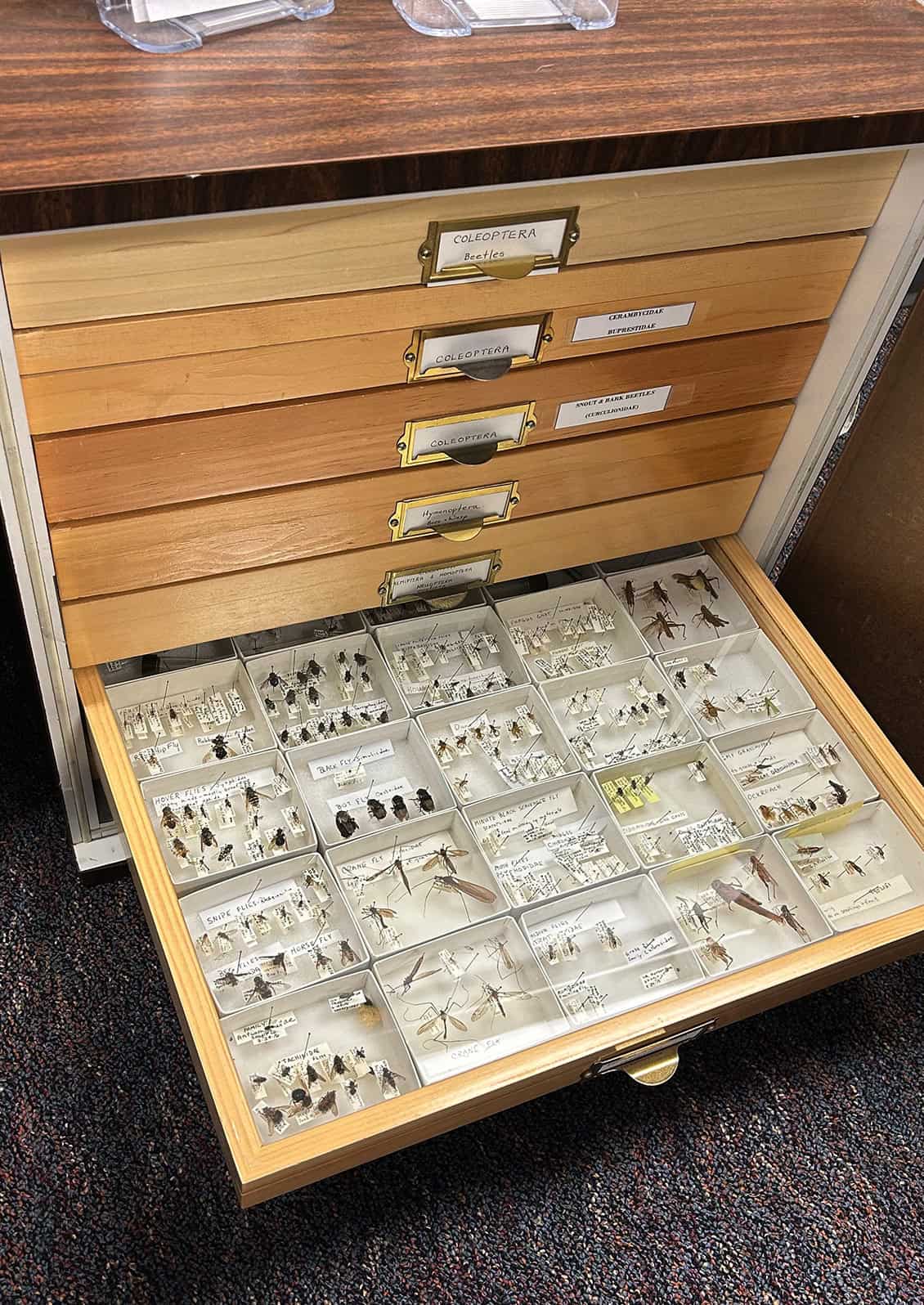
The plant clinic in Burlington is home to Dr. Lloyd Eighme’s (1927 – 2021) extensive insect collection which can be viewed during clinic hours. https://www.skagitmg.org/home/publications/insects/ © Skagit County WSU Extension Master Gardeners
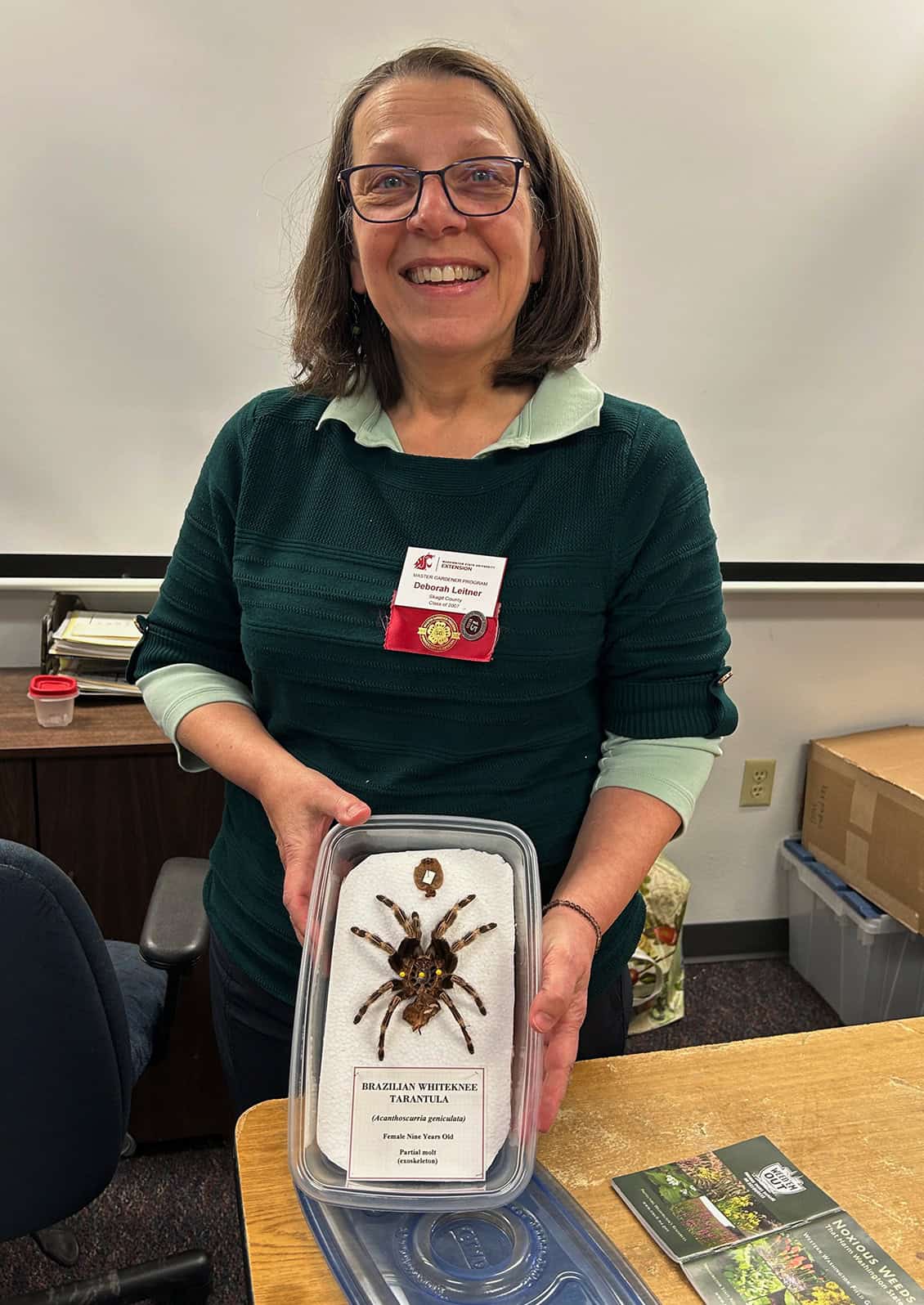
Dr. Eighme’s insect collection is maintained and enhanced by Skagit County Master Gardeners and is used to educate the public and to build and share knowledge about insects in our region. © Skagit County WSU Extension Master Gardeners
WSU Extension Master Gardener Plant Clinic Locations and Hours:
Burlington:
Wednesdays, 10 a.m. to 2 p.m. April through October
WSU Skagit County Extension Office, 11768 Westar Lane, Suite A (near Skagit Airport), Burlington
Anacortes:
Saturdays, 10 a.m. to 2 p.m. (Open Saturday, May 18 through Saturday, October 12)
In the Depot Building at 7th St & R Ave., the Farmers Market, Anacortes
Farmers Market Info Booths:
Master gardeners are available at info booths at the Farmers Markets in Mount Vernon, Sedro-Woolley, and Concrete. Though these info-stations aren’t equipped with microscopes and an entire resource library, the master gardener volunteers at the Farmers Market info-stations can answer many of your gardening questions and connect you with the resources you need to be a successful home gardener. Check day and time with local directories.
Visit a Master Gardener Plant Clinic while attending one of these annual events:
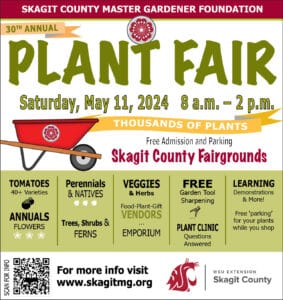
Free Admission & Parking
May 11, 8 a.m. to 2 p.m.
Skagit County Fairgrounds
Learn More >
Plant Clinic at the Discovery Garden / Display Garden Open House
Saturday, June 29, 2024 – 10 a.m. – 2 p.m.
Discovery Garden, 16650 State Route 536 (Memorial Hwy), Mount Vernon, WA 98273
Learn More >
Plant Clinic at the Skagit County Fair
Bring your plant questions to the master gardener booth at Skagit County Fair, August 8 – 11, 2024
If you can’t visit during plant clinic hours, you can submit your question:
- Online: https://www.skagitmg.org/home/plant-clinic-submission/
- Email: [email protected]
- Phone message: 360-395-2368
Alternatively, you can drop samples off at the WSU Skagit County Extension Office between 8:30 a.m.- 4:30 p.m. Monday through Friday. Information on preparing your samples for mailing or dropping off is online at https://extension.wsu.edu/skagit/mg/clinics/
Please provide:
- your garden location
- a detailed description of the problem, plant, or insect
- send digital photos if possible
- phone number and email if we have more questions
During the off-season, plant clinic staff meets every other week to answer emails and work on problems, so there may be a short delay in receiving your answer.
Remember, there are many reasons your plant may not be thriving. Perhaps it is a tender specimen homesick for warmer climates, or it might prefer a sunnier or shadier location in your yard. It might perk right up with some soil amendment and a different watering regimen. Stressed plants are more susceptible to insect attack and disease. A virus or a fungus might have settled in, or tiny insects might be emerging to feast. The solution could be as simple as picking off the damaged leaves, instituting good winter cleanup practices, or using a handheld sprinkler to wash insects off leaves. A visit to a Master Gardener Plant Clinic will help you solve your gardening challenges and decide what to plant next.
REFERENCES AND RESOURCES:
Sanchez, N. Key strategies for integrated pest management. Oregon State University.(Aug. 2019) Retrieved from: https://extension.oregonstate.edu/pests-weeds-diseases/ipm/key-strategies-integrated-pest-management
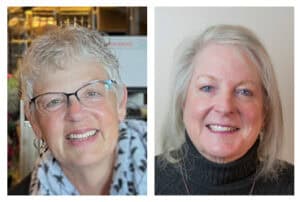
Ginny Bode and Anne Hays
ABOUT THE AUTHORS :
Ginny Bode and Anne Hays are Skagit County WSU Extension Master Gardeners, Class of 2022. They are co-editors of the Ask a Master Gardener blog and are always interested in hearing from readers about future topics of interest.
Questions about home gardening or becoming a Master Gardener may be directed to: Skagit County WSU Extension Office, 11768 Westar Lane, Suite A, Burlington, WA 98233; by phone: 360-428-4270; or via the website: www.skagit.wsu.edu/mg
A Second Act for Your Square 1-Gallon Pots at the Discovery Garden!
Bring your leftover square 1-gallon pots to the Discovery Garden (16650 State Route 536, Mount Vernon). The bin for recycling the square 1-gal pots is located in the parking lot, just north (to the right) of the main entrance.
We only need square 1-gallon pots like the ones pictured below (bottom right). The recycling bin will be available now through fall. Simply put your pots into the bin, and we take care of the rest!
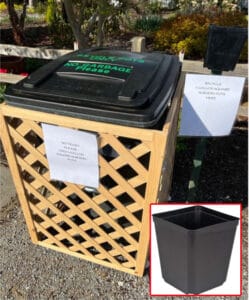
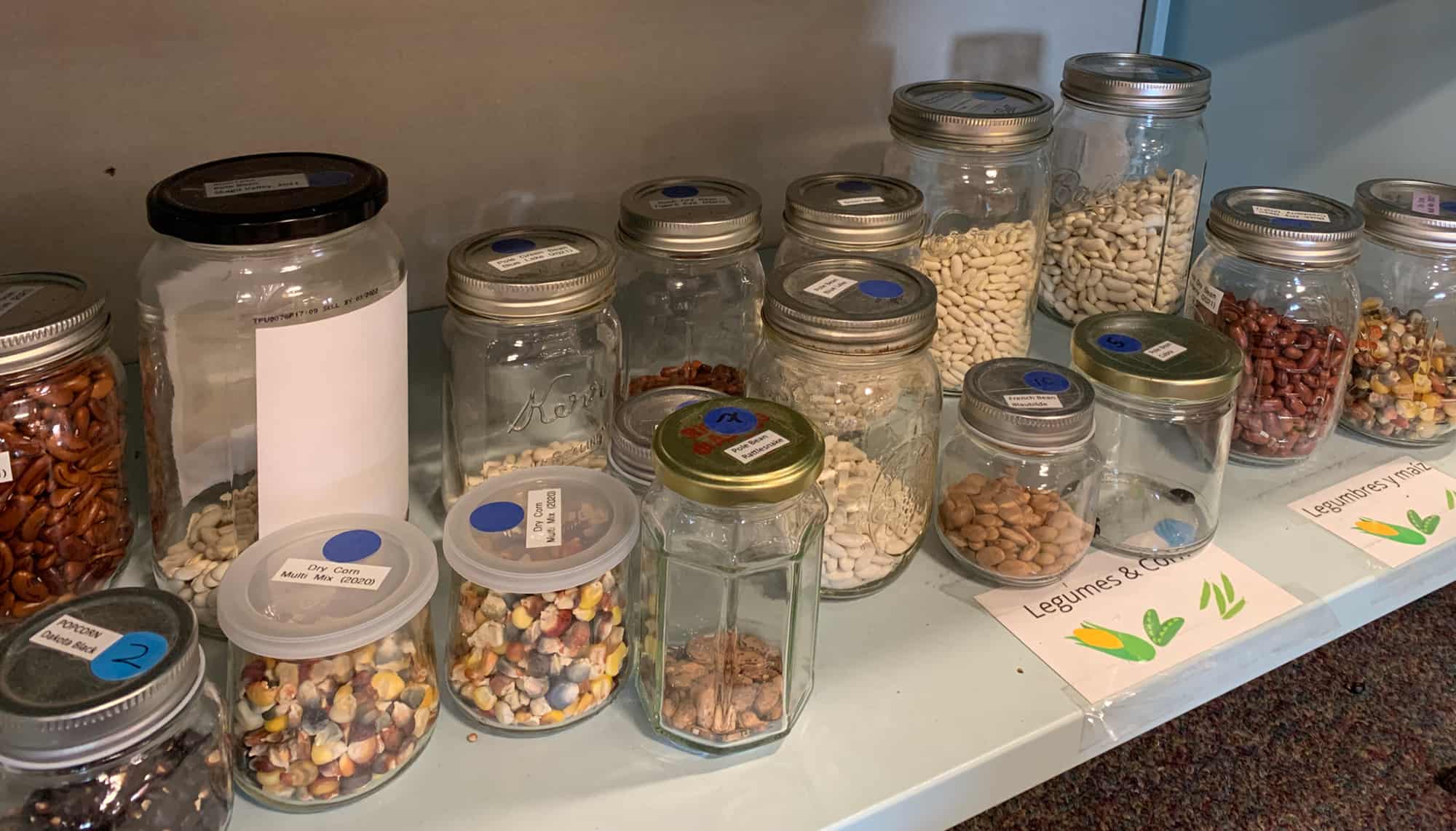
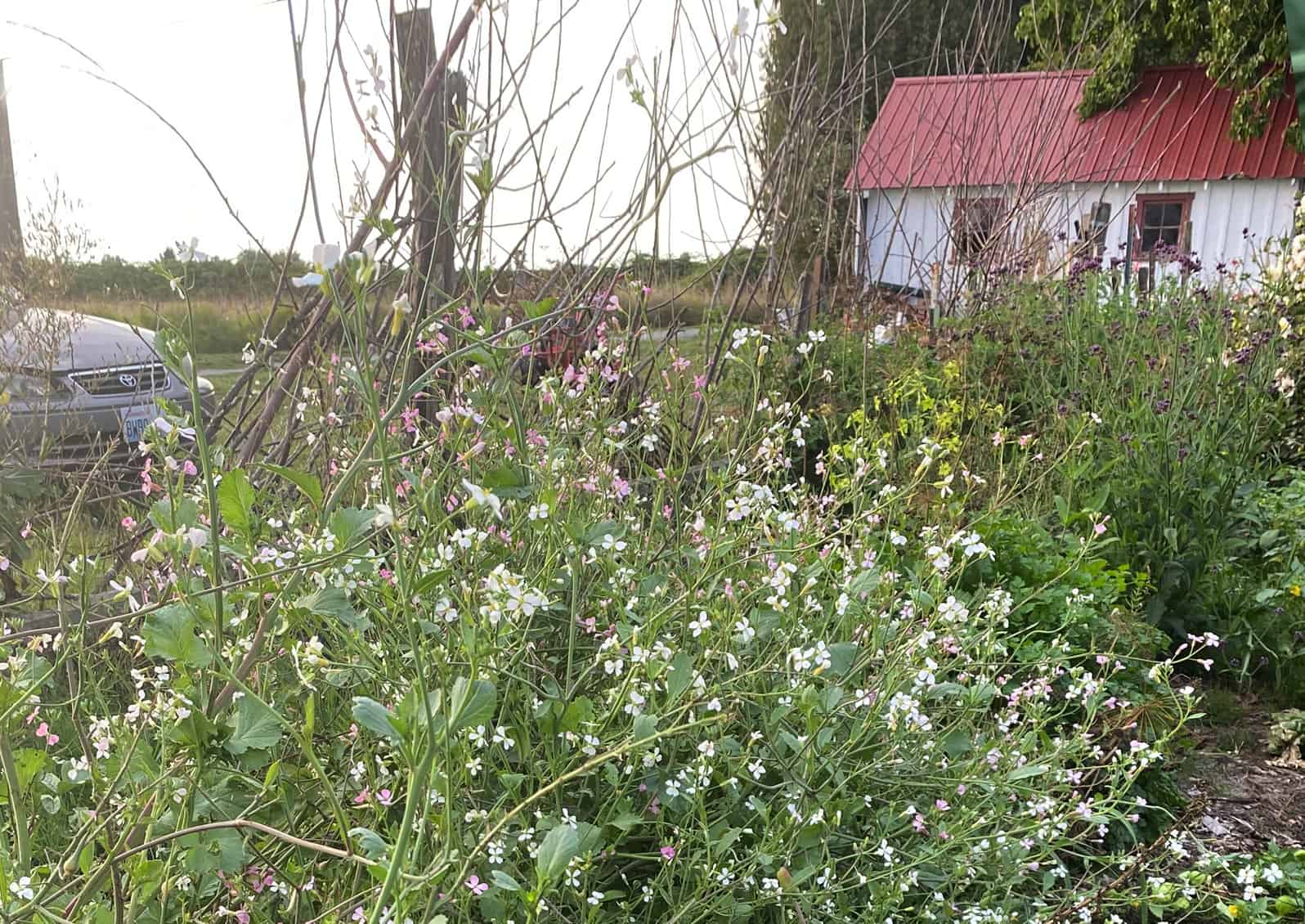
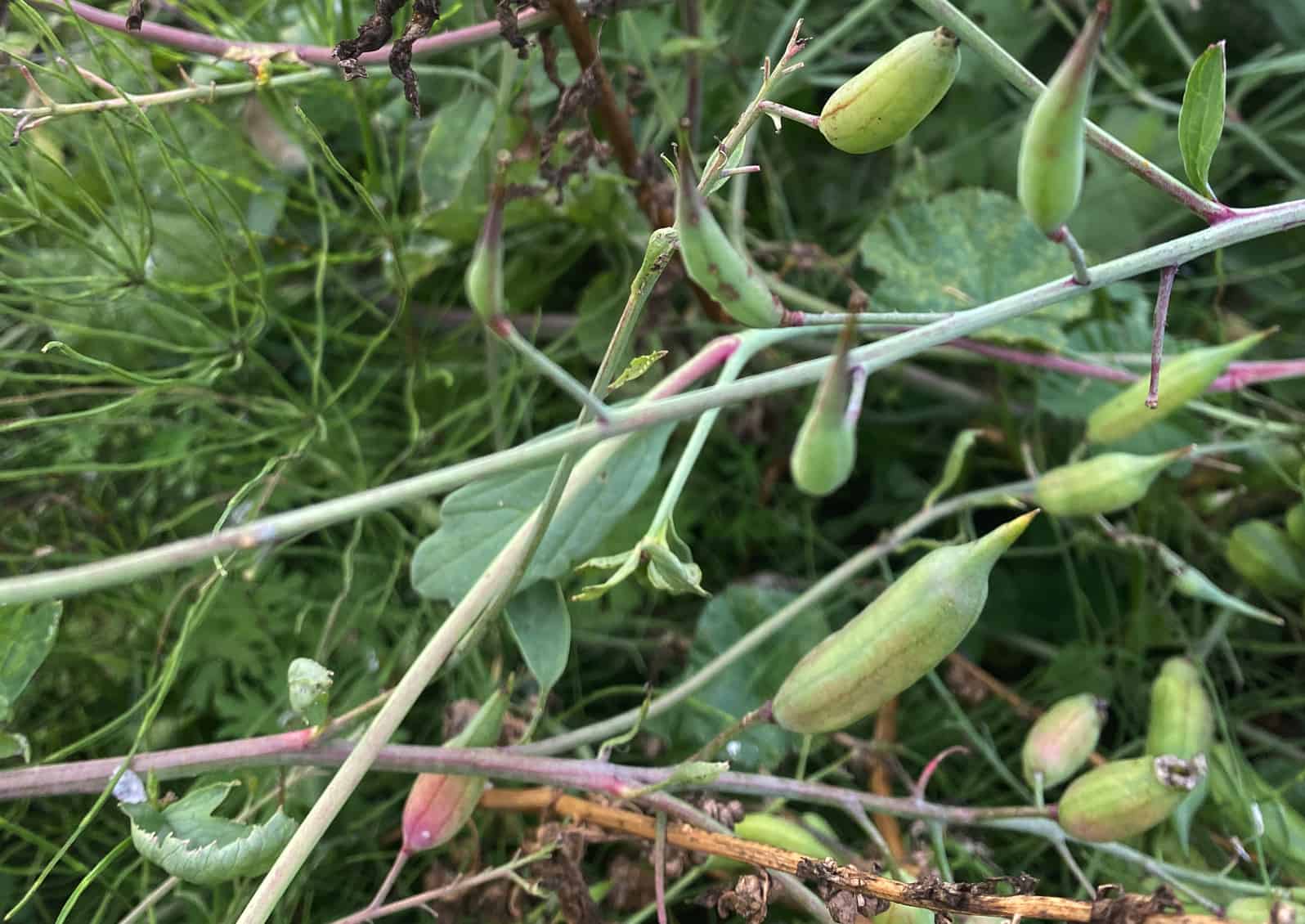
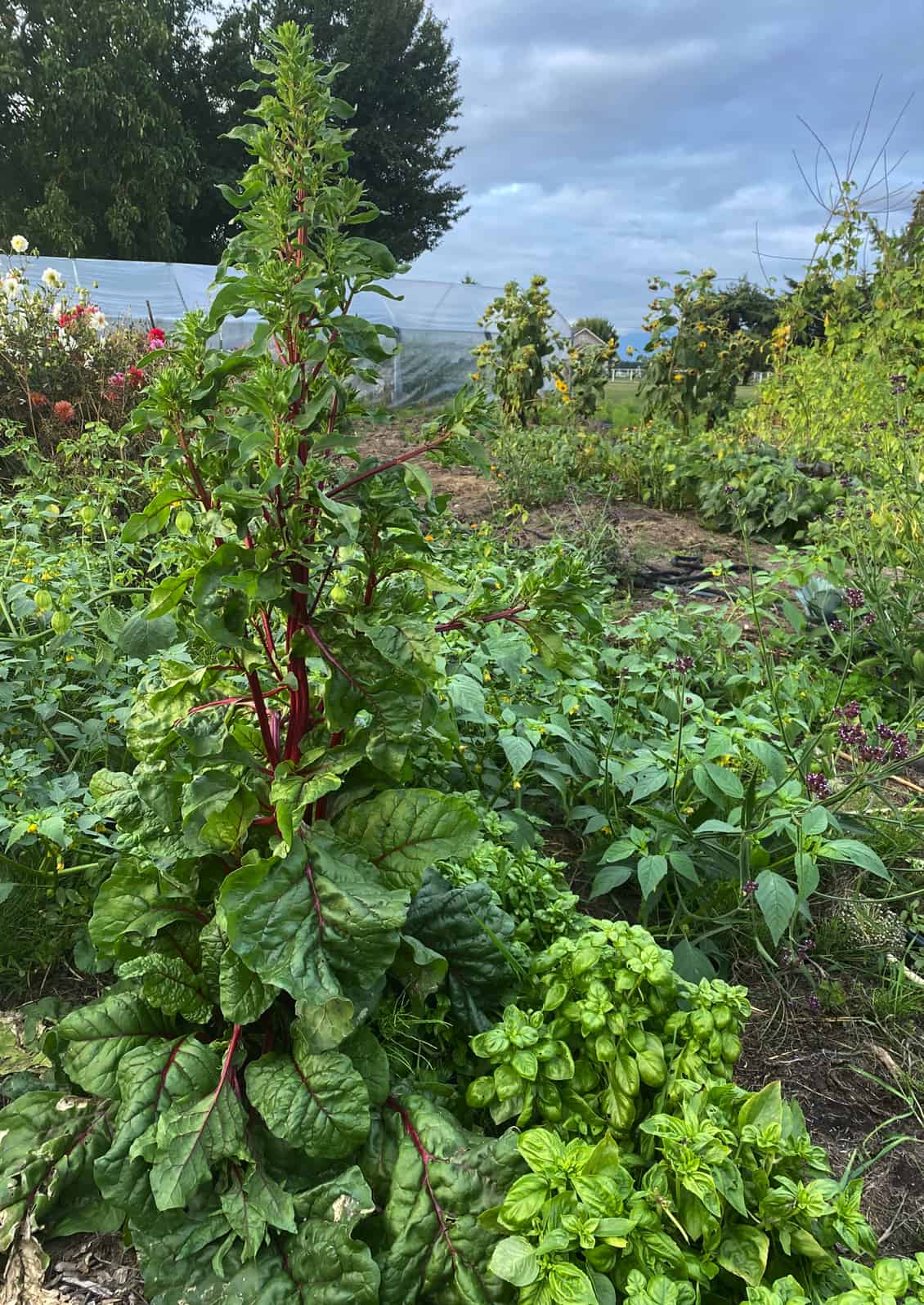
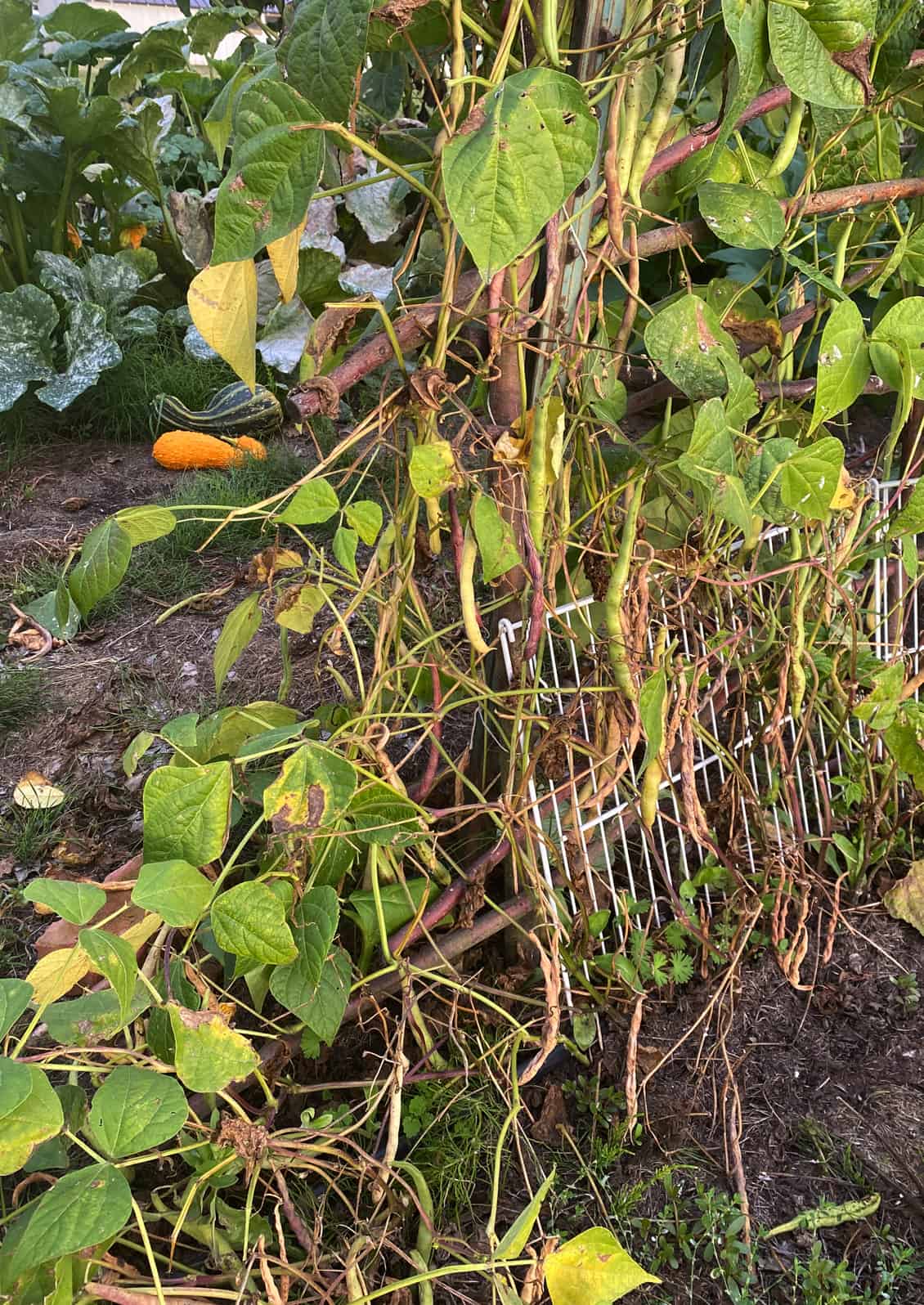
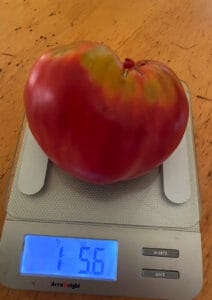
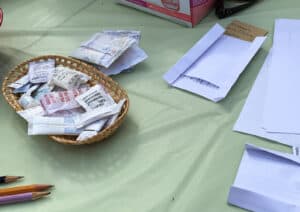
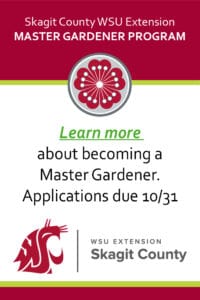
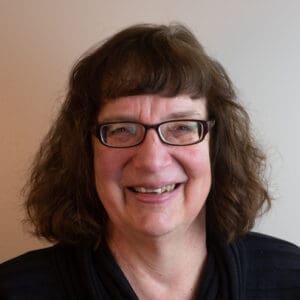
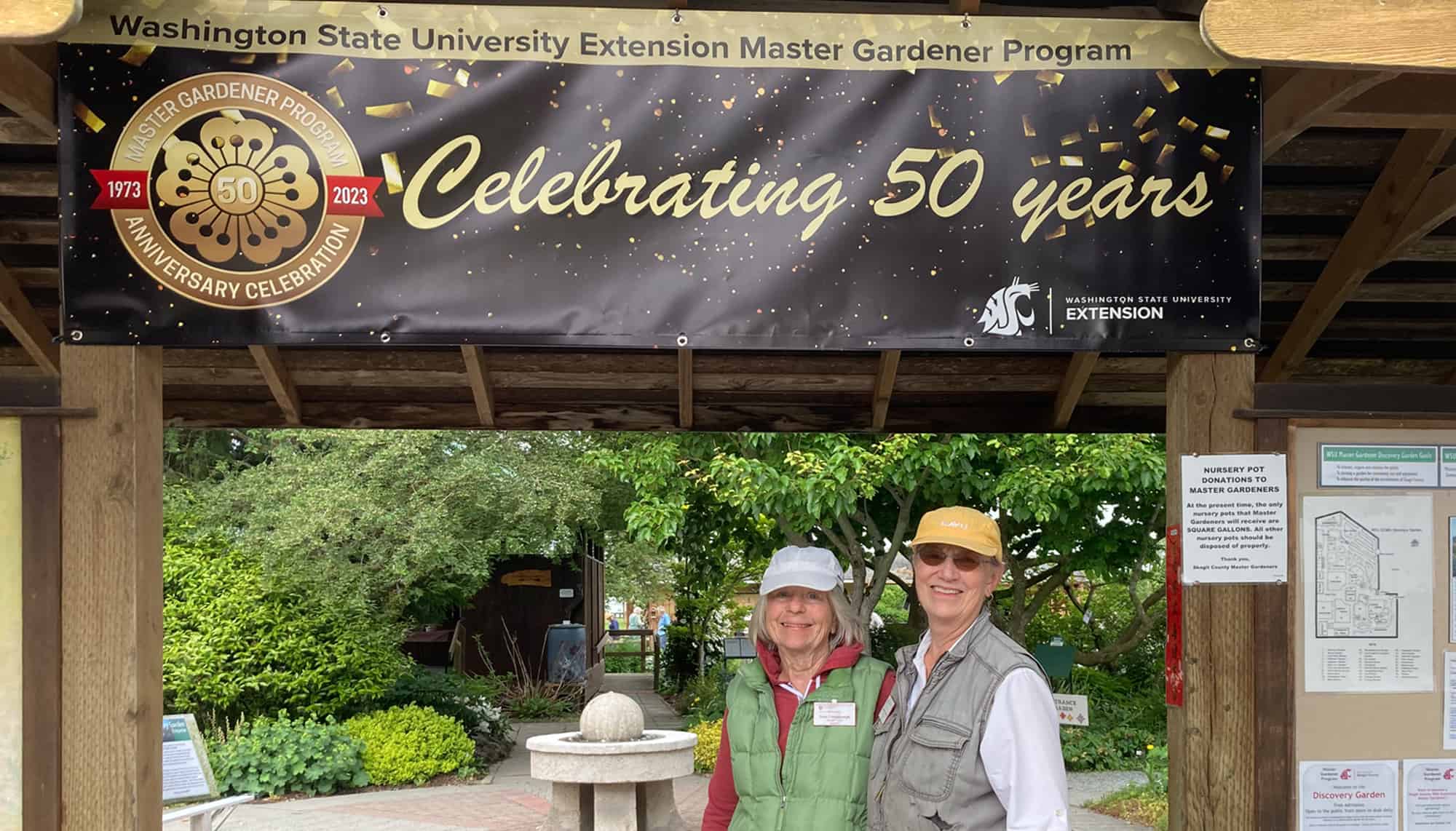

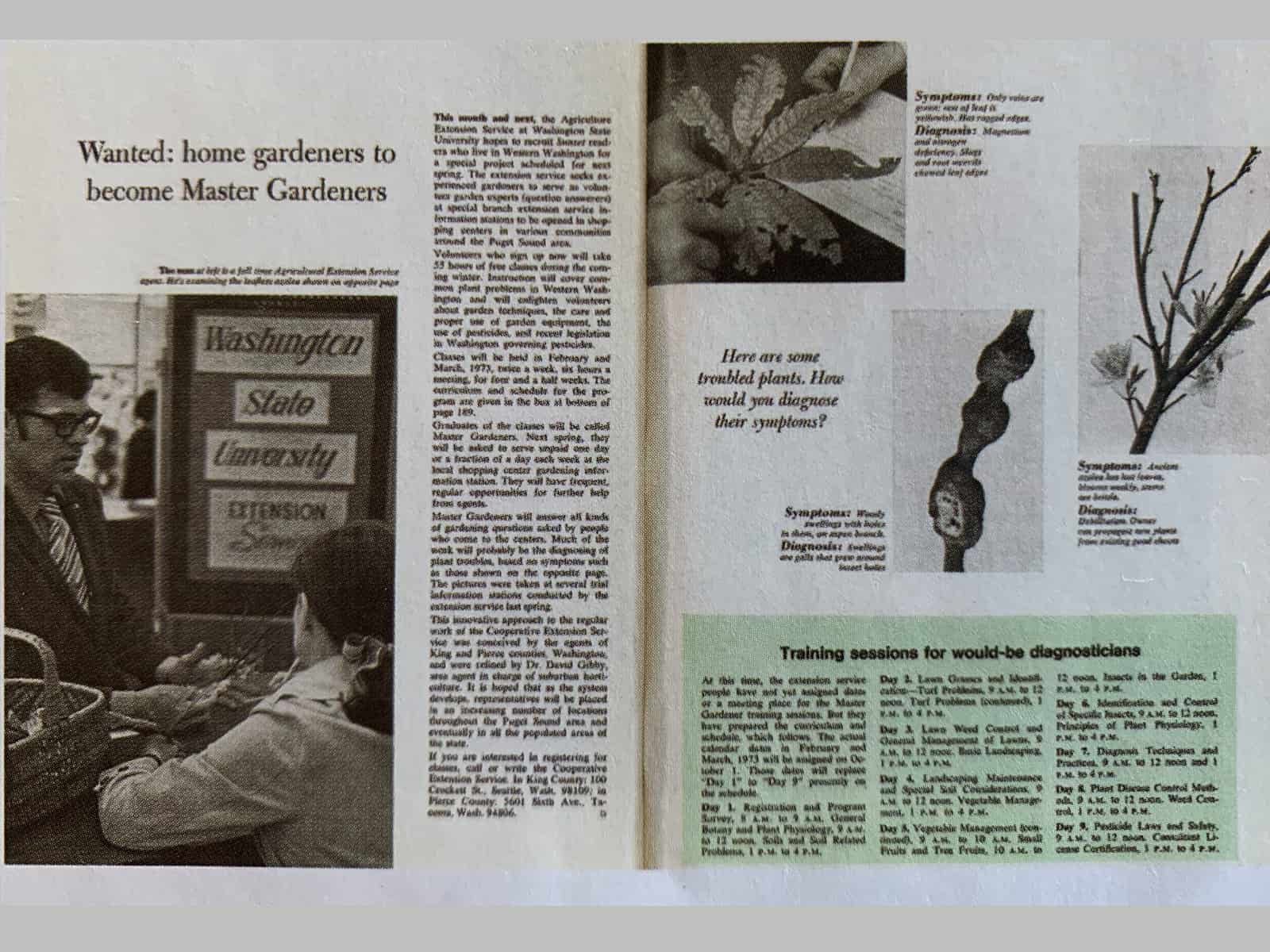
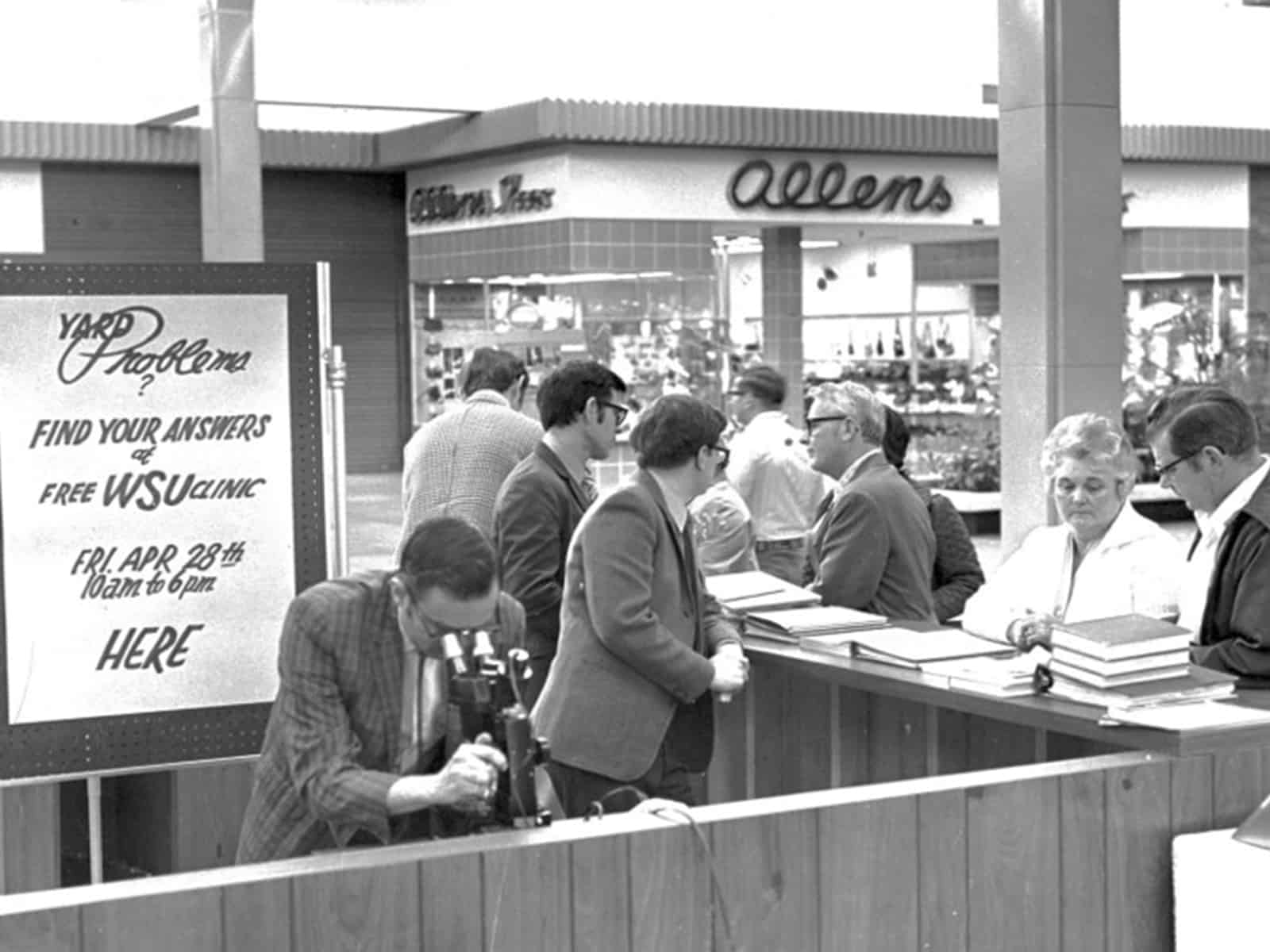
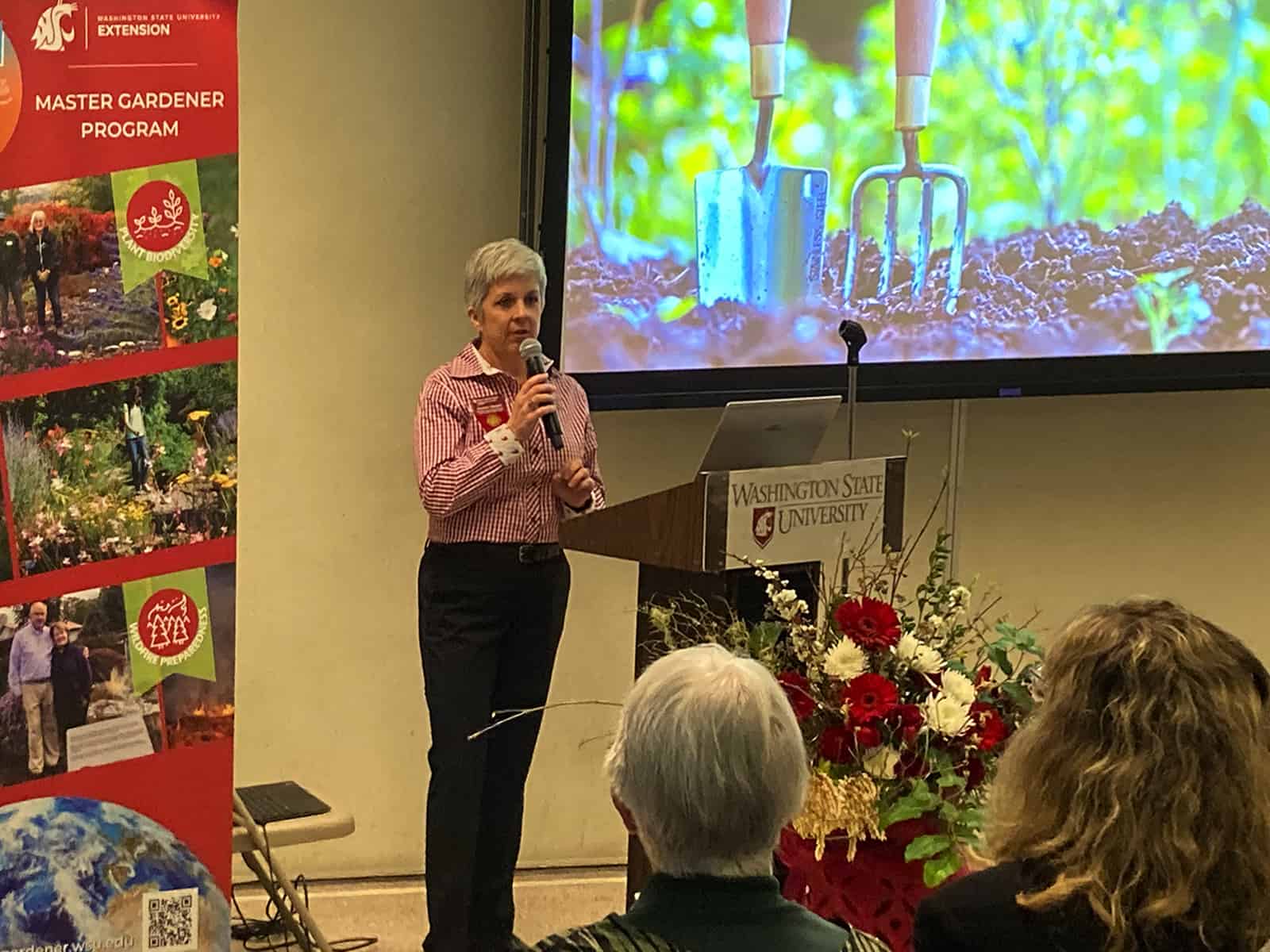

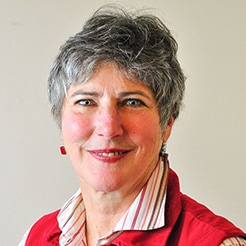 Deborah Smeltzer has been a Skagit County WSU Extension Master Gardener (EMG) since 2012. She currently serves as president-elect of the Skagit County Master Gardener Foundation board and as chair of the Skagit County WSU EMG Program Training Team. In 2020, Deborah was named Washington State Master Gardener of the Year by the Master Gardener Foundation of Washington State.
Deborah Smeltzer has been a Skagit County WSU Extension Master Gardener (EMG) since 2012. She currently serves as president-elect of the Skagit County Master Gardener Foundation board and as chair of the Skagit County WSU EMG Program Training Team. In 2020, Deborah was named Washington State Master Gardener of the Year by the Master Gardener Foundation of Washington State.